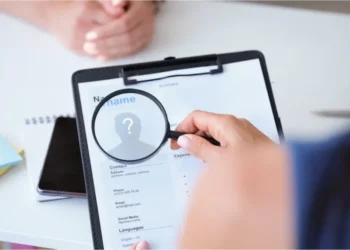Preface
If it may describe an informant, it is easier to understand for somebody. One who trades information about illegitimate activities or assists law enforcement agencies for some benefit. If you turn into a confidential informant for a local, state, or federal law enforcement agency, you could have your charges released or, most probably, have them and the potential punishment lessened.
As this is the talk of the town, get out of being informant a confidential informant can be helpful to your case. However, it is only sometimes best. On the other hand, if you’re working with the police, it could be harmful to you occasionally. Furthermore, your approach as an informant may be required in many cases. Your words are always precious, but you must be conscious of your risk and keep arrangements to define your next move.
However, it is understandable that law enforcement never displays the status of a snitch to be known publicly in the criminal community. Get out of being informant could be easy under a cooperation agreement with the police. Police are always aware of how to protect their snitches and create a chilling effect under the cloak of anonymity.

Introduction
This is proven that when someone decides to become an informant, they have some ethical, moral, and personal reasons behind the decision. Informants’ role in the investigation is anyhow considered pivotal in various aspects. This is challenging, more involving, and involves risk factors and legal ramifications.
However Get out of being informant, when a confidential informant wants to take off the veil of a snitch, and it becomes heavy to sustain them, it can be challenging to get out of being informant. This article will explore ways to exit the informant role and make it more accessible without difficulties and problems.
Self-Observation And Decision-Making
What an informant has to do first of all? Introspection and assessment of self are the prior steps that cause one’s decision. Appraise the get out of being informant on your mind and heart, relationships, and personal values.
After start considering the risks which can harm your actions. Even you can consult with a trustworthy friend or family member and take assistance from a trusted counselor to attain an external perspective on your situation.
Search For Legal Counsel
You can take help from a legal counsel if you are Get out of being informant, you have complete legal rights, and there are attorneys to help for your protection. You should consult an experienced attorney who understands your case and deals with all complications.
When seeking to disengage from the role of an informant, enlisting the expertise of legal counsel emerges as a pivotal step. Engaging legal representation provides invaluable guidance on navigating the complexities surrounding informant exit strategies. A qualified attorney proficient in criminal law and informant matters can offer comprehensive insights into the legal implications, potential risks, and available options for extrication.
This is an entire potential way to protect yourself in all embarrassing situations, which shadow never be less.

Communicate Yourself Intelligently
This is too crucial to communicate with yourself all the time. Once you have decided to cease as an informant, you must take care of your involvement and carefully plan your leaving strategy.
You should find a trustworthy individual in your organization to get him played as a mediator in your communication with the concerned authorities. Ensure to prevent discussing your intentions with anyone who is untrustworthy or could be slightly threatening.
Document Everything
You must maintain an honorable record of your informant activities, handler interactions, and all concerned information. This documented filing will assist you as evidence if your cooperation with authorities is ever asked or tainted against you.
When seeking to extricate oneself from the role of an informant, meticulous documentation becomes an indispensable tool. Comprehensive documentation encompasses all interactions, communications, and agreements with law enforcement, creating a tangible record of the informant’s involvement.
Discuss Exit Conditions
Open dialogue is always considered better; you should negotiate the terms and conditions of your exit thoroughly. This sort of discussion will protect you in the future and guarantee your safety subsequently.
Exiting the role of an informant involves navigating a complex web of ethical, legal, and personal considerations. get out of being informant often cooperate with law enforcement agencies to provide information about criminal activities, but circumstances might arise where they wish to discontinue their involvement. These exit conditions can be influenced by factors such as personal safety, fear of retaliation, changing moral convictions, and the desire to distance oneself from criminal associations.
Explicit and open discussion can be challenging, but it will provide a smoother exit.
Reach Out To Supportive Set-Ups
Identifying advocacy groups, legal aid organizations, or human rights activists will be very beneficial. These sorts of groups can you provide sound guidance and support during the process and help to reduce any fear.
If you find yourself entrenched in an informant role and are seeking ways to transition into more supportive environments, it’s crucial to approach this shift with thoughtful consideration. Begin by identifying your own needs and goals, as well as the reasons you want to move away from get out of being informant. This self-awareness will help you communicate your intentions more effectively.
They can provide sound advice on navigating the system safely and linking you with resources. This will be proved an excellent path to protect your rights and welfare.

Relocation
Experts agreed upon relocation in certain circumstances; your safety requires moving to another place where you can start afresh and distance yourself from your informant past.
Taking this step with ultra-care and planning is necessary without leaving any traces that could be used against you.
Mental Health And Happiness
This would be true to say that leaving the informant and Get out of being informant role can be emotionally exhausting and challenging for the mind & intellect. Sometimes it happens compulsory to seek professional psyche counseling or therapy to treat your experiences after leaving the process.
Reinforce Personal Security
Once after get out of being informant, you must take measures to boost your security. It may be installing security systems at your residence, changes around your daily routines, and being cautious about sharing personal information.
This is too good to be vigilant and aware of your surroundings to minimize other risk factors.
Education And Skills Growth
It can be problematic to relocate to another city or state and strive to establish anew. To face life challenges after getting out of being an informant role, you should spend time and money on education and skills development.
It will enhance your job prospects and empower you for a good start. Vocational training or higher education can help explore new career opportunities.
Hold Community Support
Man is a gregarious animal, and nobody does something better without social support. Get Out Of Being Informant, you should join community organizations, faith-based groups, or support groups that are considered compassionate and encouraging in challenging circumstances.
On the other hand, seek understanding and empathetic individuals for your personal and emotional growth.
Keep Off The Radar
Maintaining a low profile and preventing fascinating others’ attention would be better. Avoid doing from discussing your past informant activities with new associates. Never engage your new friends in risky behavior involving them in needless but dangerous scrutiny.
“keeping off the radar” becomes an essential strategy. This involves adopting deliberate measures to minimize visibility and potential risks associated with informant status. Informants may need to limit communication with both law enforcement and the individuals they provided information about, avoiding any actions that could draw attention or suspicion.
Try To Find Forgiveness And Healing
As an informant, you did many things in the past. Perhaps you keep feeling guilt and feeling injustice for harming people. Now the solution is to join restorative justice programs, where available, to facilitate healing and reconciliation with impacted parties. It will soothe your feelings and assist in retrieving well worldly status.

Keep Away From Unnecessary Online Activities
This is the digital age, and online presence must be maintained throughout. You, as you get out of being informant, should protect your social media activities. This is crucial; try to delete or privatize your social media accounts associated with your informant’s past and be conscious of the information you share online.
Conclusion
get out of being informant. This all proves that the decision to get out of being informant is not easy. . Exiting from the role of informant is an arduous and life-changing process. However, it is vital to prioritize your welfare, safety, and ethical values throughout this journey. On the other hand, it is a talk of the interest of others concerned with you that can never be ignored. As well as it can only be taken seriously with the involvement of the entire environment.
Moreover, it may involve various complexities, such as the web of legal, ethical, and personal considerations. Pursue legal counsel, communicate your intentions intelligently, and connect with supportive networks to have perfect guidance for this most challenging journey. Seek legal counsel and support from advocacy groups to navigate the complexities of exiting the informant role.
The thing to remember is your recovery and personal growth demand time. Still, your decision to get out of being informant role is a fundamental step towards regaining your life and well-being. With determination, support, and resilience, you can move forward for a brighter future beyond the dark shadows of your past.




















